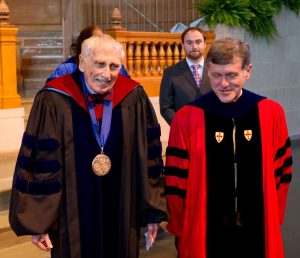No sooner had the Supreme Court of the United States begun releasing its summer decisions than the word “theocracy” started trending across social media in headings like, “Supreme Court Accused of Starting A ‘Theocracy’ Following Public School Prayer Ruling” and “Courting Theocracy” and “The Supreme Court Has One Agenda: Christian Theocracy.”
And, true to form, politicians like Representative Lauren Boebert, R-Colo., rose to the task. Speaking at Cornerstone Christian Center in Basalt, Colo., Boebert declared to congregational applause: “The church is supposed to direct the government. The government is not supposed to direct the church.”
That is as basic (and scary) a definition of theocracy as one can find.
Boebert didn’t stop there, adding, “I’m tired of this separation of church and state junk. It was not in the Constitution; it was in a stinking letter and it means nothing like what they say it does.”
The “letter” to which she refers is the oft-cited missive sent by Thomas Jefferson to the Danbury Association of Baptists in Connecticut in 1802. Jefferson wrote: “I contemplate with sovereign reverence that act of the whole American people which declared that their legislature should ‘make no law respecting an establishment of religion, or prohibiting the free exercise thereof,’ thus building a wall of separation between Church & State,” quoting from the First Amendment to the Constitution.

James Dunn (left) and Bill Leonard
The Supreme Court decisions and Boebert’s diatribe sent me back to the words and actions of James Milton Dunn (1932-2015), Baptist dissenter and enduring advocate for religious freedom and uncoerced faith, whose assertion that “the problem with a theocracy is everyone wants to be Theo” provides the title for this essay.
With a Ph.D. in Christian ethics, Dunn served as a pastor and campus minister, and in directorships at the Texas Baptist Christian Life Commission and the Baptist Joint Committee for Religious Liberty. At the time of his death, July 4, 2015, Dunn was resident professor of Christianity and public policy at the Wake Forest University School of Divinity.
Unlike Rep. Boebert and certain Supreme Court justices, Dunn understood that theocracy is not about gospel; it’s about power and control. In fact, he saw it coming in 1984: “We are seeing in the United States today a deliberate attempt to collapse the distinction between mixing politics and religion (which is inevitable) and merging church and state (which is inexcusable).” Dunn’s assessment is even more ominous now than 38 years ago.
Dunn’s insights on religious liberty came to mind amid release of the Supreme Court rulings, often promulgated by its 6-3 supermajority of rightist justices. The court’s decisions reflect sweeping responses to multiple issues, with powerful implications for religious traditions inside and outside the church. Consider these:
First, the court overturned Roe v. Wade, the court-supported right to abortion established in 1973 and returned abortion-related laws to the control of the states, with more than 20 now prepared to eliminate the option altogether. That action dramatically worsened the fissures in an already badly divided nation.
In a May 27 Fulcrum essay titled “Courting Theocracy,” Lawrence Goldstone wrote: “Abortion is one of the most delicate and difficult issues with which both the court and the country must grapple. As much as either side is loath to admit it, each has a point. Alito’s opinion does not balance the nuances, however, but instead simply dismisses one side while fully embracing the other. His reasoning, as many legal analysts have pointed out, is contrived and transparently flawed — religious dogma dressed up as law. Here is a word for a system of government in which the dictates of religion override other freedoms and civil guarantees. Theocracy.”
Second, the court ruled that Maine’s extension of public funds to rural private schools must include religion-based institutions, even those that restrict admissions for theological reasons. Chief Justice Roberts wrote: “A state need not subsidize private education. But once a state decides to do so, it cannot disqualify some private schools solely because they are religious.” (Six of the nine judges attended Catholic parochial schools.)
In response, Amanda Tyler, Dunn’s successor as executive director of Baptist Joint Committee for Religious Liberty, warned: “I’m concerned that the current Supreme Court seems overly deferential to free exercise claims of some, while not giving enough weight to Establishment Clause principles and how those principles protect religious freedom for all. Instead, the court has couched a number of its recent decisions in terms of trying to prevent discrimination against religion, interpreting Establishment Clause principles that gird against government-sponsored religion as ‘discrimination’ in certain contexts.”
Third, the court also overturned a New York state law that restricted the public use of concealed-carry weapons. Writing for the majority, Justice Clarence Thomas stated that, in regulating firearms, “the government must demonstrate that the regulation is consistent with this nation’s historical tradition of firearm regulation.” Restrictions remain possible but must be within designated environs.
“Apparently preserving the lives of the unborn has little bearing on protecting the lives of the born in a country where the Second Amendment demands absolute judicial sanctity.”
One of the saddest aspects of the court’s controversial rulings is that the same judges who voted to overturn Roe also voted to reject New York’s century-old rules on concealed-carry weapons. Apparently preserving the lives of the unborn has little bearing on protecting the lives of the born in a country where the Second Amendment demands absolute judicial sanctity, and citizens’ only recourse is to arm themselves against the inevitable shooters.
In the United States, firearms may be the ultimate Theo, evidenced by the July 4 mass shooting in Highland Park, Ill., in which seven people died.
Fourth, the same 6-3 majority ruled in favor of an Oregon high school football coach who for years led locker room and on-field prayers until school officials became concerned about potential legal action from parents concerned about religious coercion. The coach ceased leading team prayers but continued post-game prayer on the field’s 50-yard line, a practice that also drew players, students and fans.
In the majority opinion, Justice Neil Gorsuch wrote: “The Constitution and the best of our traditions counsel mutual respect and tolerance, not censorship and suppression, for religious and nonreligious views alike.”
Responding to that decision, BJC legal counsel Holly Hollman cautioned that the “Supreme Court ruling undermines religious freedom in public schools by holding that school officials must accommodate a public school teacher’s religious exercise at a school event. The decision flies in the face of decades of decisions that have allowed students to enjoy their religious freedom rights without fear of school-sponsored religious practices.”
She added: “This court pays lip service to religious freedom but throws out any concern about avoiding government pressure on students. Students should not have to worry about whether their religious beliefs will be in or out of favor with their teachers, coaches and administrators, much less be pressured to participate in religious exercises at school.”
Given these and future Supreme Court rulings and reactions from analysts like Hollman, I’d start with these brief proposals:
First, let’s not dismiss the expansive theocratic rhetoric of folks like Lauren Boebert too quickly. That agenda has motivated a substantial minority of American Christians to support efforts that got us to this moment. Given their increasing control of the sources of power, their agenda will continue.
In his MIC article “The Supreme Court has One Agenda: Christian Theocracy,” Jewish journalist Rafi Schwartz writes: “To the extent that we have a future to speak of, historians in that upcoming era will undoubtedly look back at the past few weeks of Supreme Court rulings and rightfully deem this stretch as the most significant lurch toward overt American theocracy in the modern era.”
“The Christian church usually has lost its soul, or a portion thereof, when it aligned itself and its gospel with ‘Caesar.’”
Second, let’s not forget that the Christian church usually has lost its soul, or a portion thereof, when it aligned itself and its gospel with “Caesar.” John Leland, 18th century Baptist preacher in Virginia, lobbied — no, hounded — the “founding fathers” for what became the First Amendment.
Leland wrote perceptively: “The fondness of magistrates to foster Christianity has done it more harm than all the persecutions ever did. Persecution, like a lion, tears the saints to death, but leaves Christianity pure: state establishment of religion, like a bear, hugs the saints, but corrupts Christianity, and reduces it to a level with state policy.”
Leland was right then and now.
Third, we Baptists (and other fellow travelers) had best learn or relearn the roots of our dissenting tradition. John Leland said it for his times and ours: “Whether … the Christian religion be true or false, it is not an article of legislation. In this case, Bible Christians, and deists, have an equal plea against self-named Christians, who … tyrannize over the consciences of others, under the specious garb of religion and good order.”
Must we learn to live like that? James Dunn would have said, “Hell yes,” speaking theologically, of course.
Bill Leonard is founding dean and the James and Marilyn Dunn professor of Baptist studies and church history emeritus at Wake Forest University School of Divinity in Winston-Salem, N.C. He is the author or editor of 25 books. A native Texan, he lives in Winston-Salem with his wife, Candyce, and their daughter, Stephanie.
Related articles:
No, Rep. Boebert, the church is not supposed to ‘direct the government’ | Opinion by Michael Chancellor
Jeffress says he’s not a ‘Christian nationalist’ but America was founded as a ‘Christian nation’
No, Pastor Jeffress (and others), America is not a Christian nation. And here’s why it matters | Opinion by Andrew Daugherty
Coach Kennedy’s Hail Mary | Opinion by David Ramsey


